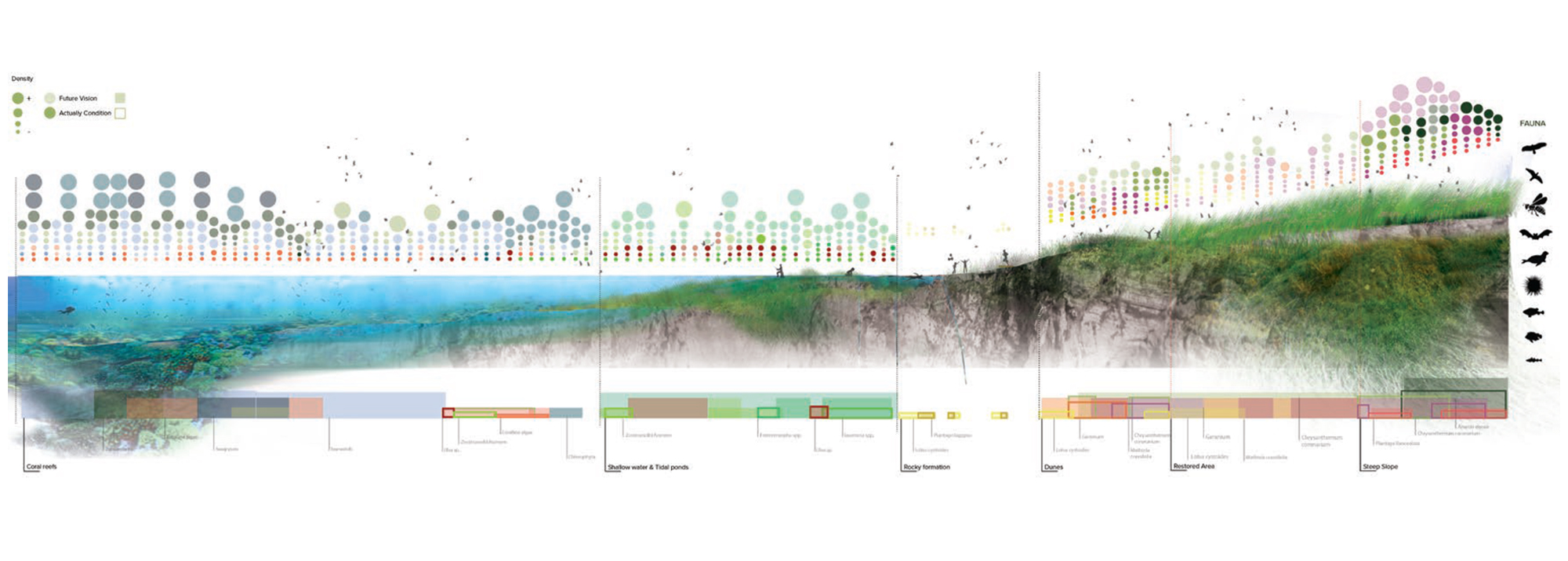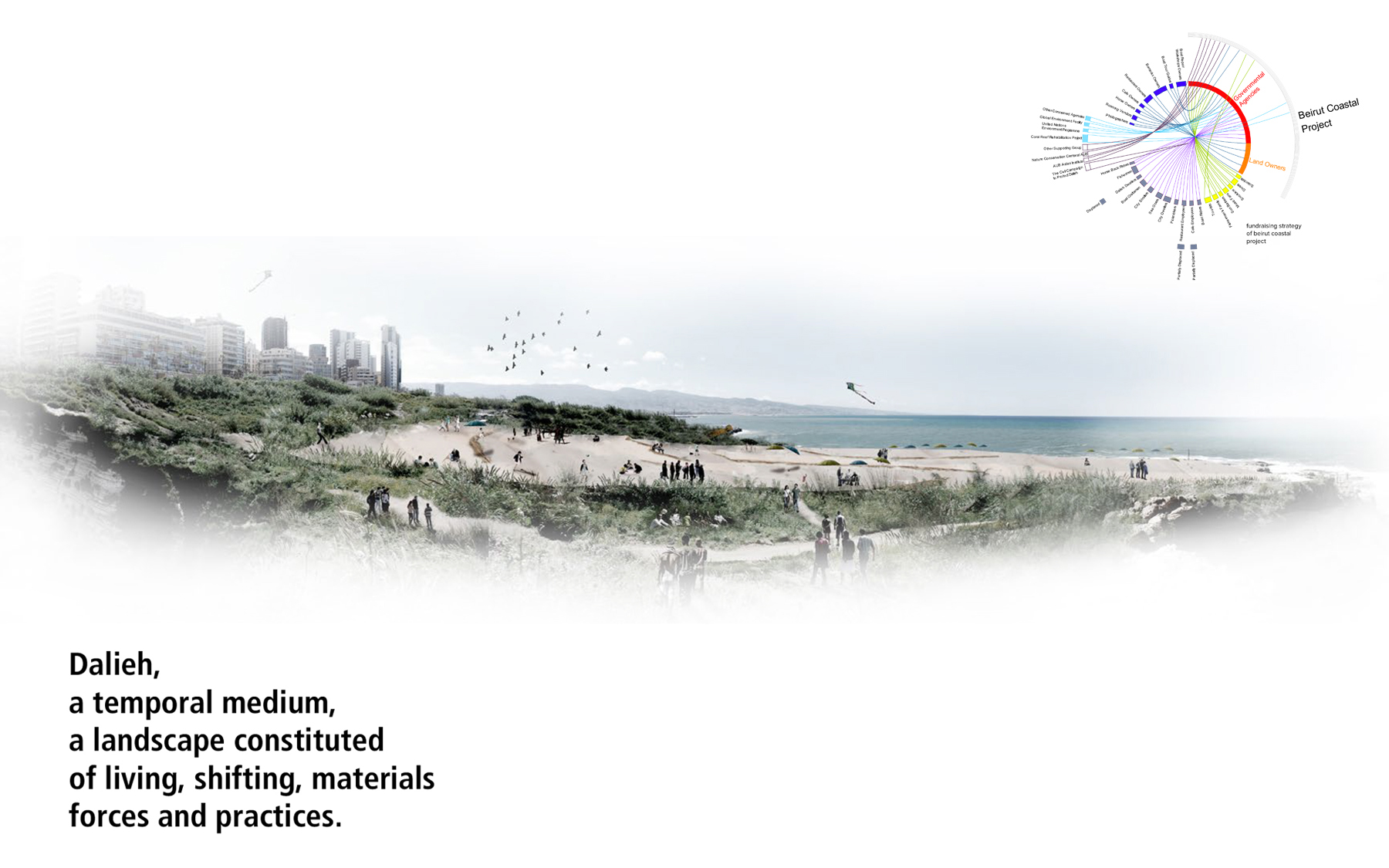
Our intervention recognizes that the Dalieh geological formation is concomitant to the offshore rock formations of the Raouche, and that they should be dually designated as a single environmentally protected terrain. It engages with the transience of the coastal frontier and its fragility by addressing three interdependent temporal systems (the aquatic, the coastal and urban) contextualized through the inception of a new governing coastal agency conceived as a joint public-private venture.
It is an institutional strategy that feeds into existing ministerial and municipal structures and which attempts to facilitate the management of what it exacts as an undeniable common shared space for the city of Beirut.
The materiality of urban ‘process' usually dictates that process must end in product. The only escape is if the state declares otherwise, and expropriates the Dalieh and allows process to survive in such spaces devoted to closing the loop of cycles and functions at the scale of the city.
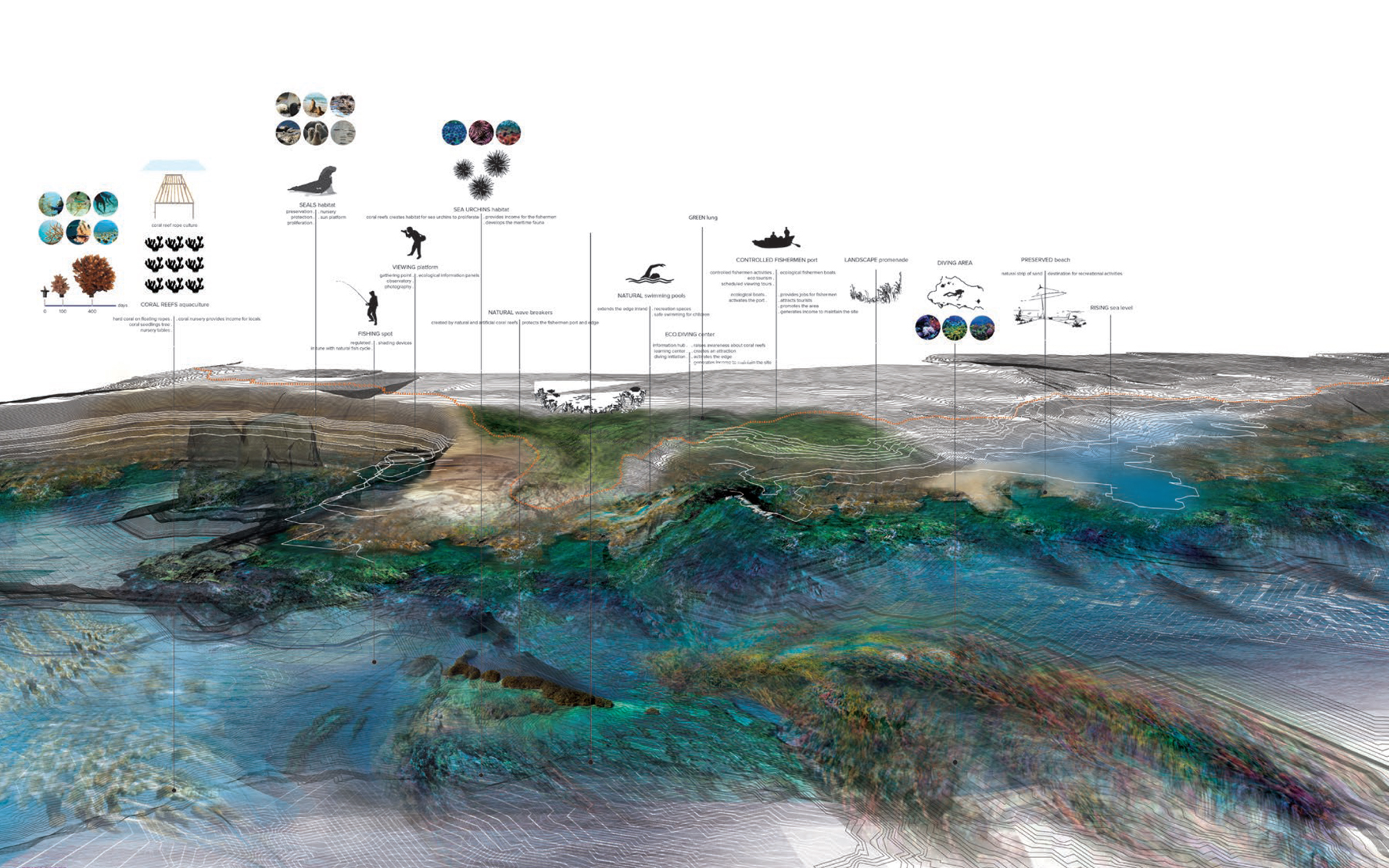
We choose to interpret the Dalieh as a temporal medium, choose to privilege its process over product, and propose incompleteness as a given in our ‘finished' proposal.
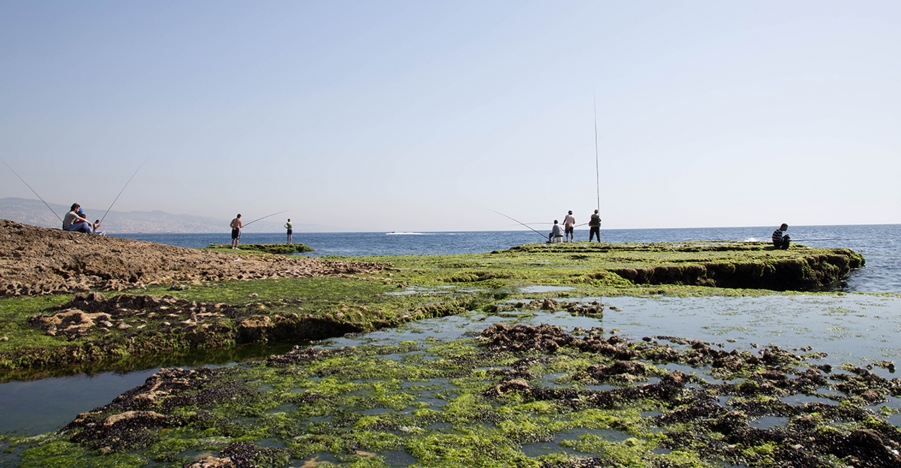
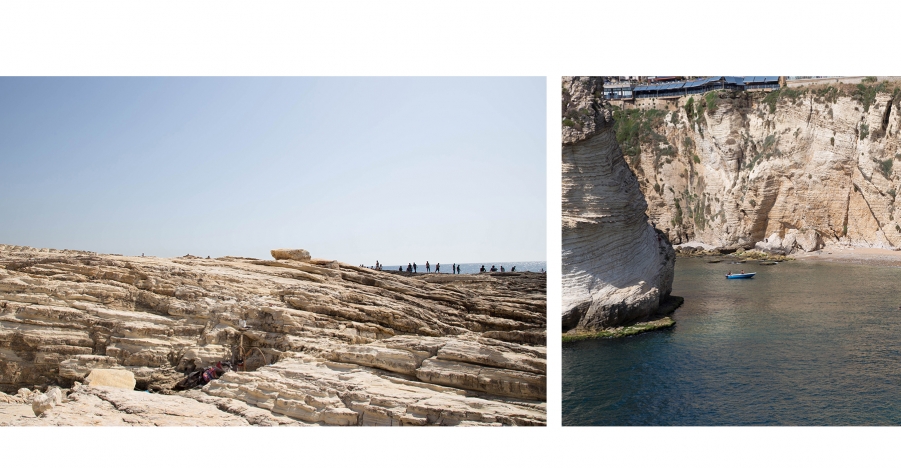
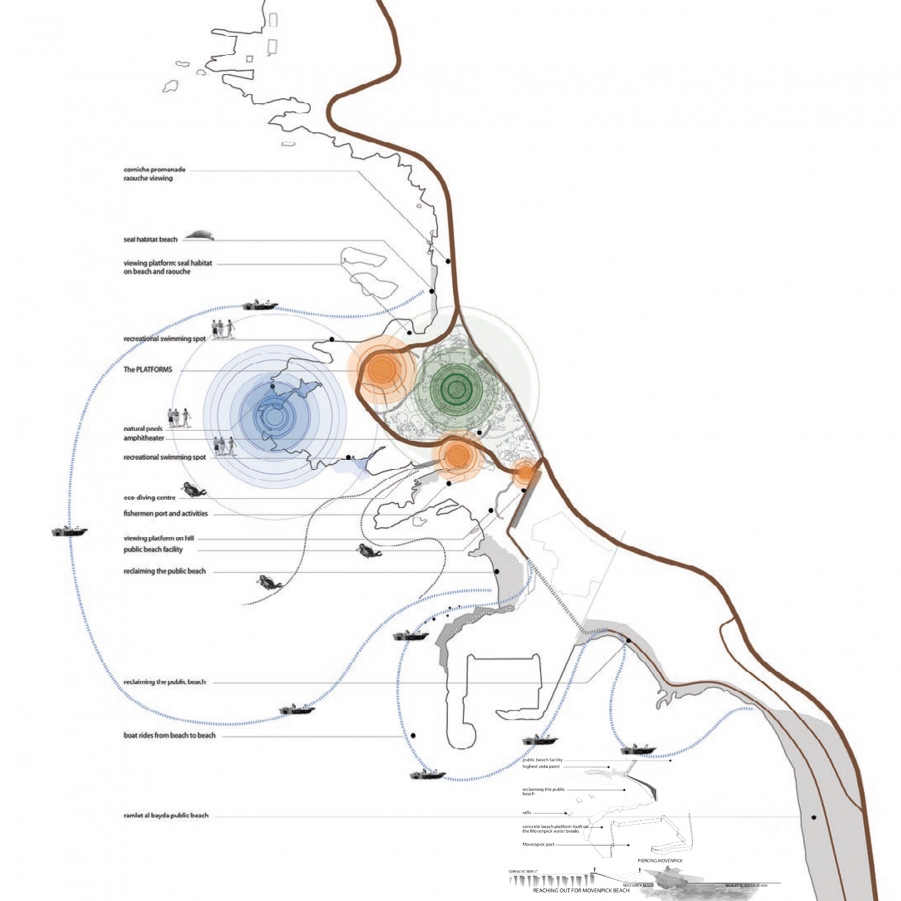
This landscape is as much, if not more, about the grown as the inert, and is constituted of living, shifting, materials forces and practices to such a great extent, that it cannot help but change over time.
This change must be sustained, and allowance in that space must be made for it.
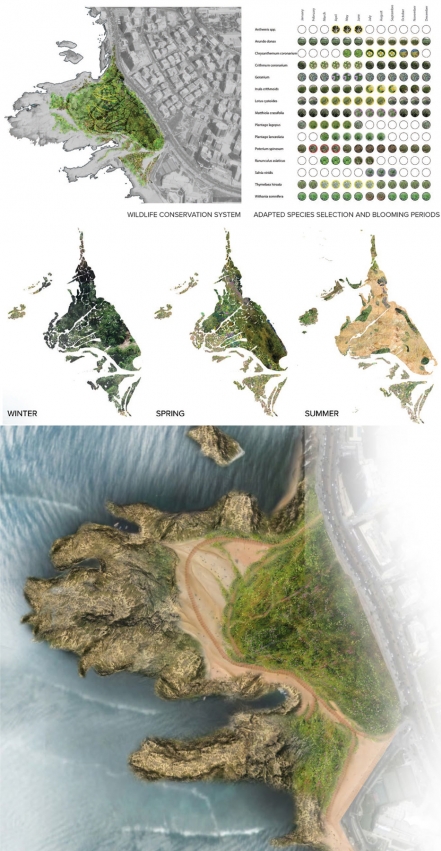
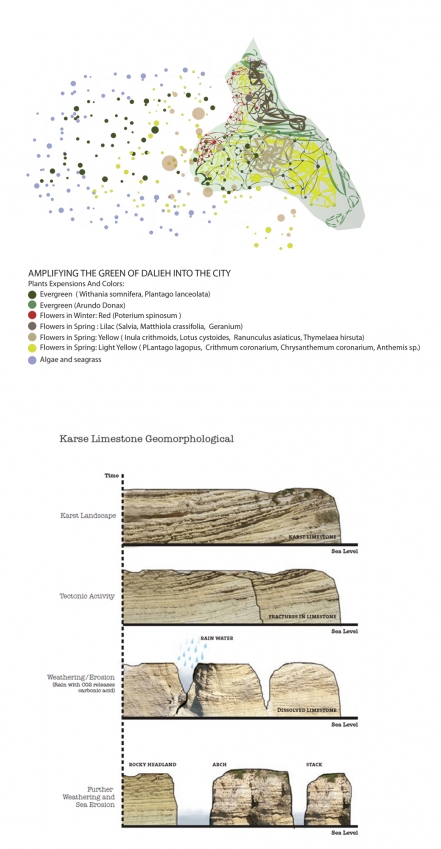
The site is treated as a single environmentally protected terrain and with an assisted natural regeneration of the existing coastal lung with a wild flower habitat. The resilience and diversity of the existing floral matrix suggests a strategy where the wild ecology is managed, monitored but passively maintained.
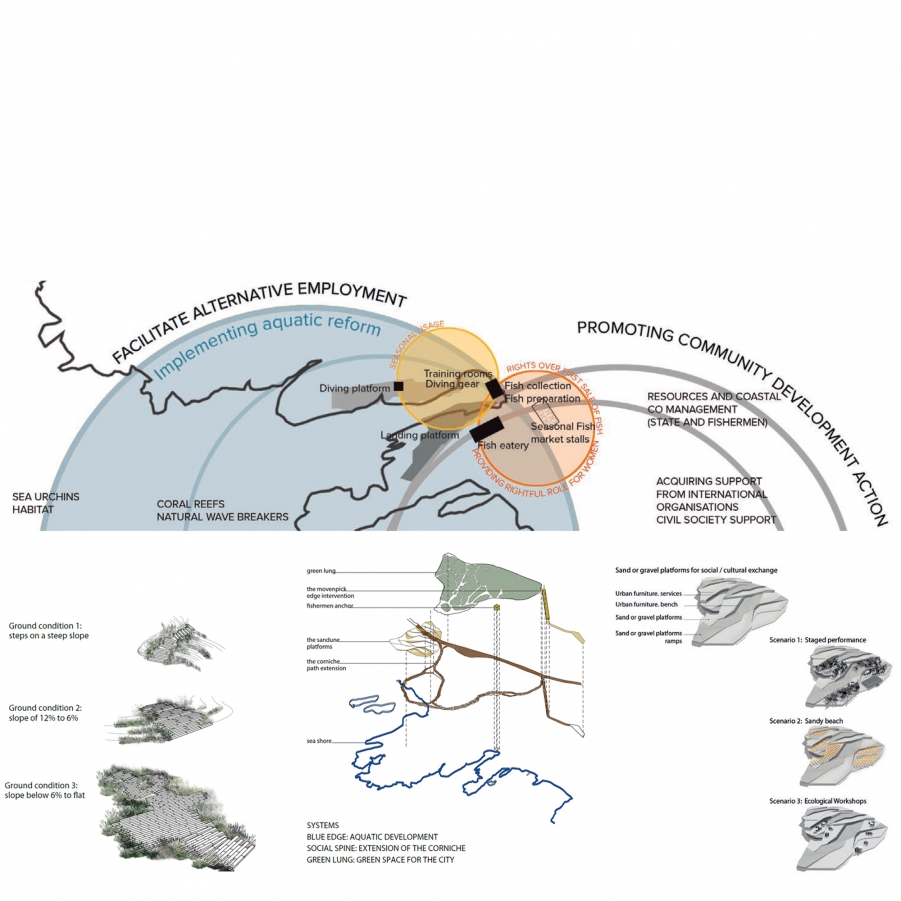

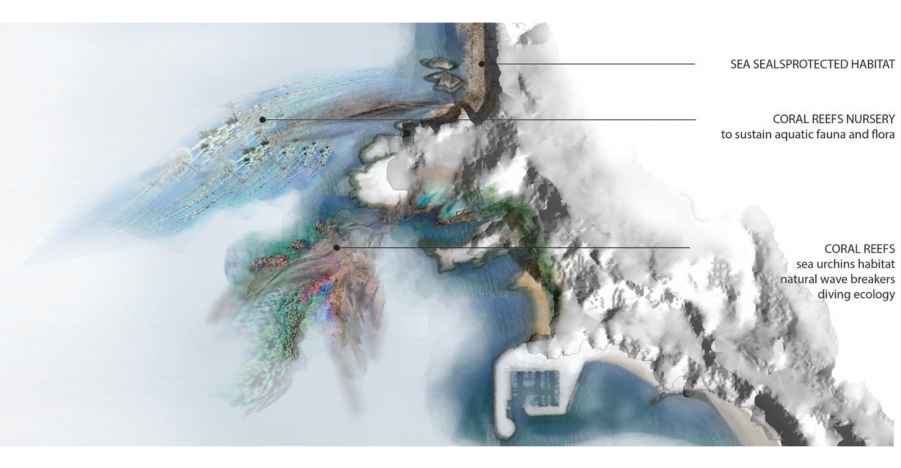
Minimal bioengineering of steep slopes and introduction of primary successional species will stabilize terrains around a porous hardscaping strategy. It becomes a dialogue between archaeological expeditions and environmental organic monitors set as requisite points within their respective agendas, as excavations could be detrimental to existing floral ecosystems.
